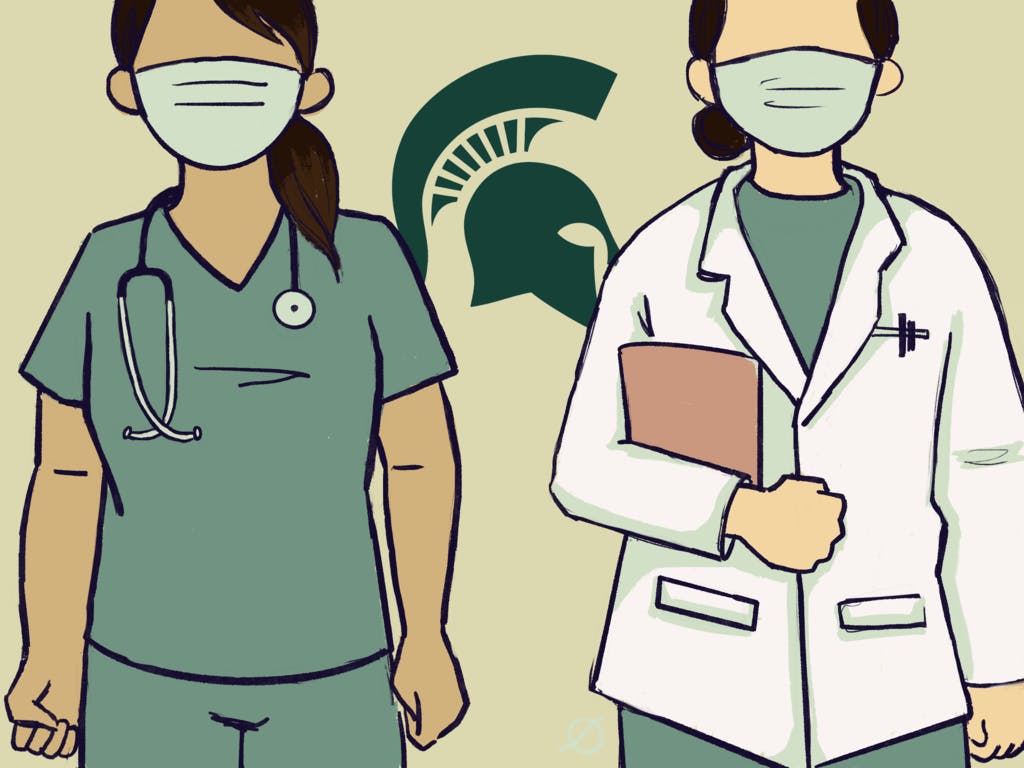Michigan State University’s College of Human Medicine, or CHM, has introduced its Research to Reduce Disparities in Disease, or R2D2, Program as the only NIH-funded training program for medical students, and it specifically focuses on training medical students to become clinical researchers.
MSU designed the R2D2 scholarship program for students interested in performing clinical research in their future careers and aspiring to further their research skills and practice with clinical research.
Recipients of the scholarship program will receive $10,000 total across two years of program participation.
R2D2 is specifically about foundational skills and doing research.
“There are other research programs in CHM, but this one, I think, creates an accountability structure and relationship with faculty that our researchers ... do a tremendous amount of research, so they (students) get that early exposure to being on a research team in a way that I don’t think happens as consistently in other research experiences in CHM,” Assistant Professor Mieka Smart said.
The R2D2 program requires a combined understanding of how to create a research question, do a review of the existing literature surrounding that question, manage necessary data needs a student might have associated with answering that question and how to put together a research team to get the question answered, ultimately.
Recruiting starts for CHM students during their first year of medical school and they must have completed applications. According to the MSU Division of Public Health, College of Human Medicine website, if accepted into the program, students are required to commit two years to the program, attend two four-week intersession workshops in Early Clinical Experience and Middle Clinical Experience during the spring and a mentored research project the summer after the student’s second year in July and August.
Selected students will match with a faculty research mentor and their minds will work together until they arrive at a project idea that addresses a health disparity.
However, some mentors can have multiple students they are working with. A third R2D2 cohort is currently being recruited, so there is the possibility of creating teams at the outset so that anywhere between one and three students can all be working on the same project with one mentor.
“The way that we have the program operate does a really good job of allowing students to get really creative and think of cutting-edge topics that our mentors might not have necessarily thought of on their own, but our mentors have the capacity to guide students through researching those topics,” Smart said.
The goal of R2D2 is for students to walk away from the program with the knowledge of what a clinical research career entails. R2D2 will give students the skills, mentorship and practice in articulating their specific research interests. Smart said it is not enough to be just interested in research, but students need to be taught to do it well by having a deep interest in eliminating health disparities.
“Certainly, a big part of the MSU community is what happens once students graduate and go off to their residency and their careers,” said Smart. “And what we anticipate is that MSU students, after going through a program like R2D2, will have the tools that they need to contribute to advances in medicine, (and) advances in medical discovery in ways that they could not have without this research training.”
For additional information, visit the Division of Public Health department's website.
The application can be found here. The application deadline is Dec. 13.
Editor's note: This article has been updated to reflect that recipients will receive $10,000 across the two years of the program.
Support student media!
Please consider donating to The State News and help fund the future of journalism.
Discussion
Share and discuss “MSU College of Human Medicine introduces R2D2 scholarship program” on social media.







